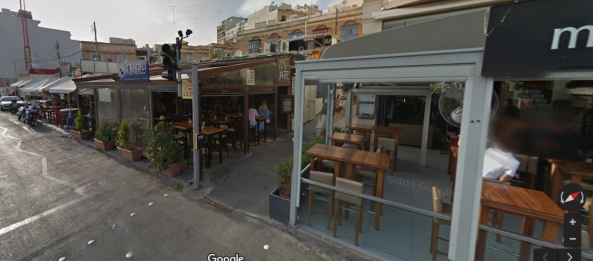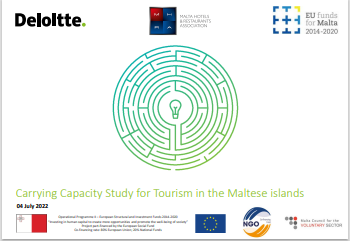Notwithstanding the increasing numbers of incoming tourists, the tourism industry is currently in a self-destructive mode. After the carrying capacity study published by the Malta Hotels and Restaurants Association (MHRA) in July 2022, one would have expected the Ministry of Tourism or the Malta Tourism Authority (MTA) to take the lead in initiating a public debate on the matter.
The Deloitte report published by the MHRA, in July 2022, entitled Carrying Capacity Study for Tourism in the Maltese Islands has pointed out that the total of existing and planned hotel accommodation would require approximately 5 million tourists per annum to ensure an 80 percent occupancy. This does not take into consideration non-hotel accommodation. If non-hotel accommodation is also taken into account, the problem would be much worse.
This is anything but sustainable. Yet, except for the public discussion on the skills required by foreign workers in the industry, no one is (apparently) bothered by the considerable negative impacts of tourism: impacts on both tourism itself as well as on the residential community. No wonder that studies have identified a developing tourismophobia. Tourismophobia has been described by Catalan anthropologist Manoel Delgado as a mixture of repudiation, mistrust, and contempt for tourists.
The total number of inbound tourists to Malta in 2023 was around 3 million. This accounted for 20.2 million bed nights and an estimated expenditure of €2.7 billion. The employment that this generates is considered by many as a positive contribution to the industry, and sustaining around 50,000 jobs.
The Deloitte report published by MHRA in 2022, however, explains that in 2009, 82 percent of those employed in the tourism sector were Maltese. By 2019 this statistic had decreased to 40.6 percent. The Deloitte report does not explain the reasons behind this trend. It only emphasises that this trend is not unique to the Maltese islands.
However, the Deloitte report goes on to argue that the reliance of the tourism industry on an ever-increasing cosmopolitan labour force is an important contributor to an increasing lack of authenticity of the touristic product. Who cares?
The ever-increasing volume of incoming tourists has an impact on both the tourist experience as well as on the quality of life of the residential community.
Many years ago a substantial portion of the residential community of Paceville was squeezed out of the locality as a direct result of the impacts of the tourist industry. It seems that no lessons were learned from this experience as various residential communities around the islands are still continuously at the receiving end. No one cares.
Tables and chairs have taken over substantial public areas around our residences, in many instances obstructing access to our homes. Consider, for example, The Strand from Gżira to Sliema: from Manoel Island right to The Ferries, and beyond. Has anyone ever considered the impact of the continuous stretch of chairs and tables on the residential community along the same stretch of road?
This experience is not limited to Sliema but also exists in Marsaskala, St Paul’s Bay, St Julians, and many other areas, including Valletta. Who cares?
The tourism industry is aware of all this. Yet the issues raised are not being addressed. The situation gets worse by the minute.
The residential communities in various localities are voicing their concerns. One of the latest to so do was the Valletta residential community.
The local council elections next June are an opportunity to elect local councilors who are sensitized to the concerns of the residents. We need Local Councils that can take up the fight directly at an institutional level as it is only in this manner that the real issues faced by our communities can be addressed.
We have a tourism industry that only cares about what goes into its bank account: nothing else is of significance. We can compensate for this by having local councils that not only care about our communities but most importantly act swiftly to right the accumulated wrongs.
published in The Malta Independent on Sunday: 21 April 2024






